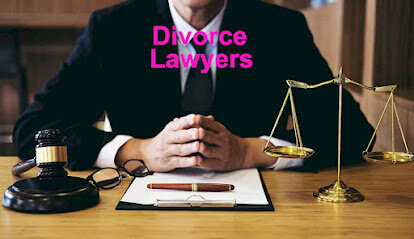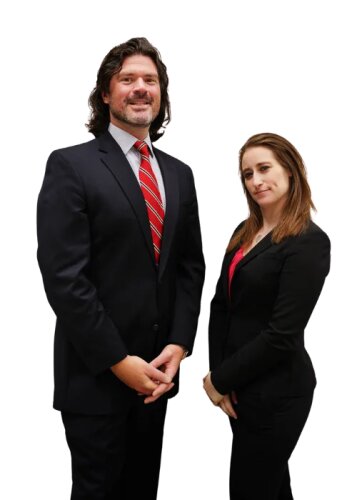Best Collaborative Law Lawyers in New York
Share your needs with us, get contacted by law firms.
Free. Takes 2 min.
Free Guide to Hiring a Family Lawyer
Or refine your search by selecting a city:
List of the best lawyers in New York, United States
About Collaborative Law in New York, United States
Collaborative law is an alternative dispute resolution process used primarily in family law cases, such as divorce or child custody matters, in New York. Unlike traditional litigation, collaborative law encourages both parties to resolve their differences amicably without going to court. Each party retains a specially trained collaborative attorney who works together with the other attorneys and parties to reach a fair settlement through open and respectful communication. Collaborative law can also involve other neutral professionals such as financial specialists or mental health experts, all dedicated to helping separating couples find mutually beneficial solutions. This approach aims to minimize conflict, protect privacy, and prioritize the interests of all involved, particularly any children.
Why You May Need a Lawyer
There are several situations in which seeking the advice of a collaborative law attorney in New York is beneficial:
- When you and your spouse want to end your marriage amicably without lengthy court battles
- If you wish to maintain a positive co-parenting relationship after divorce for the benefit of your children
- When you value privacy and do not want the details of your separation aired in a public courtroom
- If you want to have more control over the outcome rather than leaving decisions up to a judge
- When your case involves complex financial or property matters that need careful negotiation
- If you want to save time and legal expenses compared to traditional litigation
- When you are seeking a respectful, less adversarial process to resolve marital issues
Using a collaborative law lawyer ensures you have experienced legal guidance, access to resources, and an advocate skilled in negotiation and conflict resolution.
Local Laws Overview
New York recognizes collaborative law as a distinct process governed by specific rules and ethical guidelines. In collaborative law cases, both parties and their attorneys sign a participation agreement, which outlines that they commit to resolving matters outside of court. If the process breaks down and either party wishes to go to court, both collaborative attorneys must withdraw and cannot represent their clients in subsequent litigation. This rule encourages everyone to participate fully and in good faith.
Attorneys practicing collaborative law in New York must have specialized training in collaborative techniques and generally follow the guidelines set forth by professional organizations like the New York Association of Collaborative Professionals. The state supports the voluntary and confidential nature of the process, providing families with control over sensitive decisions. Collaborative law can be used for divorce, child custody, child support, asset division, prenuptial agreements, and other family matters.
Frequently Asked Questions
What is collaborative law?
Collaborative law is a legal process where parties, represented by specially trained attorneys, work together outside court to resolve disputes respectfully and privately.
How is collaborative law different from mediation?
In mediation, a neutral third party helps both sides reach an agreement, but does not represent either party. In collaborative law, each party has their own attorney who advocates for them while working cooperatively towards a settlement.
Is collaborative law legally binding in New York?
Yes, agreements reached through collaborative law are written into legally binding contracts that can be presented to the court for approval and enforcement.
What happens if we cannot agree during the collaborative process?
If parties cannot reach an agreement, the collaborative process ends, and both attorneys must withdraw. Clients can then hire new counsel and take the case to traditional litigation if needed.
Can collaborative law be used for child custody and support cases?
Yes, collaborative law is suitable for resolving child custody, visitation, and child support matters, allowing parents to create individualized parenting plans.
How long does the collaborative law process take in New York?
The timeline varies but is typically shorter than court cases. The process depends on the complexity of your case and how quickly both parties can reach agreement.
Is collaborative law more affordable than going to court?
In most cases, collaborative law can reduce costs as it avoids lengthy court battles, but exact expenses depend on individual circumstances and the professionals involved.
Are collaborative law discussions confidential?
Yes. Communications and documents shared during the collaborative law process are confidential and cannot be used as evidence in future litigation.
What professionals might be involved in the collaborative law process?
Besides attorneys, collaborative law might involve financial specialists, child psychologists, mental health professionals, or other neutral experts to help resolve complex issues.
Can we use collaborative law if we are not married?
Yes, collaborative law can assist with resolving disputes between unmarried partners, including custody, visitation, or financial support matters.
Additional Resources
Individuals seeking more information or support can turn to the following organizations and resources:
- New York Association of Collaborative Professionals (NYACP) - offers referrals to trained collaborative lawyers and educational resources
- The International Academy of Collaborative Professionals (IACP) - provides information about collaborative law and directories of practitioners
- New York State Unified Court System - information about local court procedures and family law services
- Local family law clinics or legal aid organizations in your county
- The New York State Bar Association - offers lawyer referral services and information on finding the right attorney
Next Steps
If you are considering whether collaborative law is right for your situation, begin by consulting with an attorney who is specially trained in collaborative law. They can assess your needs, explain the process, and help determine if this approach is suitable for you and your family. Gather relevant financial documents or information about your family situation to aid initial discussions. It is also helpful to discuss collaborative law with the other party to ensure willingness to participate.
Ask potential attorneys about their experience with collaborative law, their approach to conflict resolution, and typical outcomes. Once you choose your attorney, you will sign a participation agreement and start meetings with all involved professionals. Remember that the goal of collaborative law is a tailored, amicable, and cost-effective resolution, so commitment and honest communication are essential for success.
Lawzana helps you find the best lawyers and law firms in New York through a curated and pre-screened list of qualified legal professionals. Our platform offers rankings and detailed profiles of attorneys and law firms, allowing you to compare based on practice areas, including Collaborative Law, experience, and client feedback.
Each profile includes a description of the firm's areas of practice, client reviews, team members and partners, year of establishment, spoken languages, office locations, contact information, social media presence, and any published articles or resources. Most firms on our platform speak English and are experienced in both local and international legal matters.
Get a quote from top-rated law firms in New York, United States — quickly, securely, and without unnecessary hassle.
Disclaimer:
The information provided on this page is for general informational purposes only and does not constitute legal advice. While we strive to ensure the accuracy and relevance of the content, legal information may change over time, and interpretations of the law can vary. You should always consult with a qualified legal professional for advice specific to your situation.
We disclaim all liability for actions taken or not taken based on the content of this page. If you believe any information is incorrect or outdated, please contact us, and we will review and update it where appropriate.
Browse collaborative law law firms by city in New York
Refine your search by selecting a city.














